Regional Conference on: “Contesting the Legacies of Political Islam: The Past, the Present, and the Future”
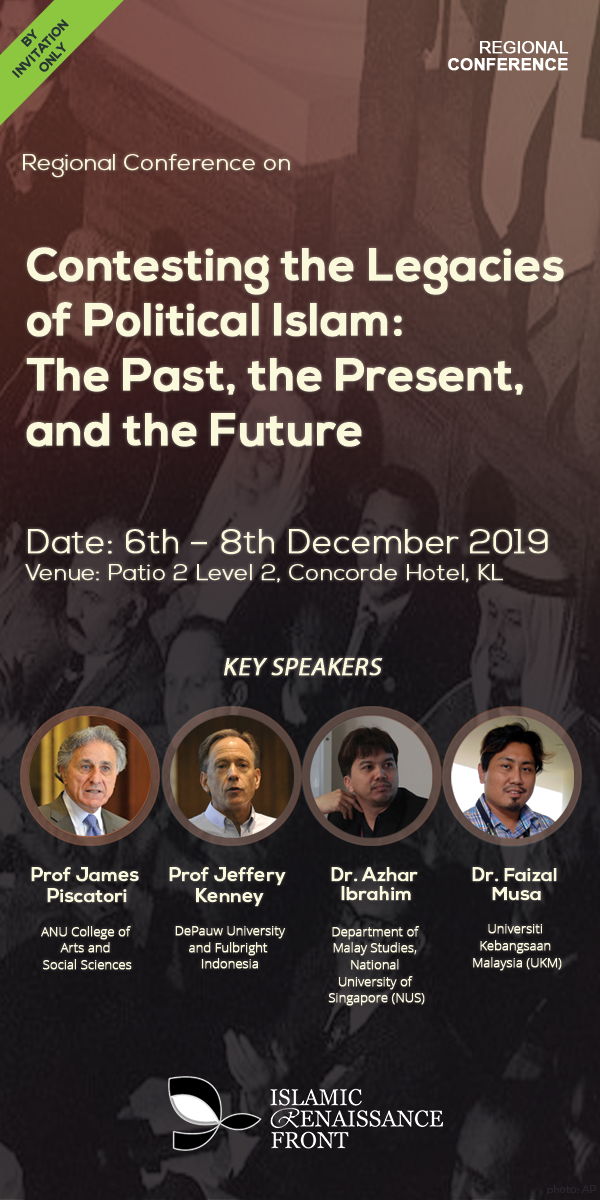
Date: 6th December – 8th December 2019
Venue: Patio 2 Level 2, Concorde Hotel, Jalan Sultan Ismail, Kuala Lumpur
Organizer:
Islamic Renaissance Front (IRF)
From Abu Hurairah r.a. from Rasulullah SAW he said: “Verily Allah will send to this nation at the top of every one hundred years the people who renew (to the nation) the religion.”
[Hadith narrated by Abu Daud]
While the vast Islamic traditions in the history of the Muslim societies bear witness to countless moments of reform and renewal in their approach, the orientalist perspective, according to Edward Said, stood in contrast with such idea. They believed that ‘Islam does not develop, and neither do Muslims; they merely are’, and, furthermore, Islam seems to be about texts rather than people. Such views are the targets of Edward Said’s criticism when he published his book titled Orientalism in 1978, rightfully during the time when Islam and Muslim societies are generally attacked for not being able to commit to the concept of democracy and freedom as understood by the imperial powers.
In today’s contemporary analysis one can still trace the residual of this orientalist assumption among scholars and policy makers around the world whenever Islam and Politics are discussed. The most influential perspective with regard to politics in the Muslim world points to a democratic deficit that characterises it, and ascribes the absence of democracy to the totalistic character of Islam, its ability to penetrate interstate boundaries, and the complete adherence of its believers to specific behavioural tenets of the Islamic culture. The general belief is that while all other cultures have adjusted to democracy, Islam’s totalism hinders the emergence of democracy in the Muslim world. Samuel Huntington and Francis Fukuyama’s theses are bolder versions of this understanding and still have considerable followers today.
The problem with such analysis is twofold; the assumption that Islamic Political thoughts has never evolve is historically and theologically inaccurate, and such a view renders the factors of history and political and economic development, and of Western and imperial domination of the region as secondary, if not non-existence, in understanding the development of modern political Islam and the problem of democratisation in the Muslim societies. Contextualization of this discourse is also equally important as one have to critically ask: to whom or what is the modern development of political Islam is responding to? What sort of world system that most of the Muslim countries has inherited, forcefully or otherwise, at the start of the modern century? And how do such the aspirations of political Islam today translate itself into geopolitical contexts and in what way does it affects the lives of the Muslim on the ground?
This conference shall revisit the subject of political Islam with a fresh and critical mind and a greater focus on the concrete situations in this region.
Welcoming Remarks:
Dato’ Dr. Ahmad Farouk Musa (Director, Islamic Renaissance Front)
Lecture sessions:
- Prof James Piscatori, ANU College of Arts and Social Sciences
Topic 1: Keynote Lecture – The History of Islamic Political Thoughts: From Classical to Modern Period
- Prof Jeffery Kenney, DePauw University and Fulbright Indonesia
Topic: Dissecting the Contemporary Challenges of Political Islam - Azhar Ibrahim, National University of Singapore (NUS)
Topic: The Spirit of Pan Islamism in Nusantara’s Islamic Discourses
- Faizal Musa, Universiti Kebangsaan Malaysia (UKM)
Topic: History of Wahhabism’s Influence in the Malay World
Public Forum:
The Role and The Future of Religions in Politics
Speakers:
- Prof James Piscatori, ANU College of Arts and Social Sciences
- Prof Jeffrey Kenney, DePauw University and Fulbright Indonesia
- Dina Zaman, IMAN Research
Moderator:
Dato’ Dr. Ahmad Farouk Musa (IRF)
Jaringan Nusantara Junior Scholars Panel Discussion (Presentation by Participants)
Presenter 1: Imran Mohd Rasid, Malaysia
Presenter 2: Hasnan Bachtiar, Indonesia
Programs
Friday, 6th December 2019
| 1500 | Check-In |
| 1600 | Conference Registration & Tea – Patio 2 Level 2 |
| 1700 |
Ice-breaking & Discussion with Participants – Patio 2 Facilitator: Ahmad Muziru Idham |
| 1900 | Dinner & Maghrib prayer |
| 2000 | Opening speech by Chairperson, Imran Mohd Rasid |
| 2005 | Welcoming Remarks by Dato’ Dr. Ahmad Farouk Musa (Director, IRF) |
|
2015
2115 |
Session 1 Keynote Speech by: Prof James Piscatori, ANU College of Arts and Social Sciences
Topic: The History of Islamic Political Thoughts: From Classical to Modern Period
Readings: TBC
Discussion & Session Summary |
| 2230 | End |
Saturday, 7th December 2019
| 0900 | Welcoming Speech by Aliff Farhan Madehi |
|
0910
1000
1100 |
Session 2 Seminar led by: Prof James Piscatori, ANU College of Arts and Social Sciences
Topic: The History of Islamic Political Thoughts: From Classical to Modern Period - II Moderator: Hazman Baharom
Discussion & Session Summary
Tea Break
|
|
1110
1210 |
Session 3 Seminar led by: Dr Faizal Musa, UKM Topic: History of Wahhabism’s Influence in The Malay World Readings: TBC
Moderator: Rasyad Razin
Discussion & Session Summary |
| 1300 | Lunch & Zuhur prayer |
|
1430
1515 |
Session 4 Seminar Led by: Dr. Azhar Ibrahim, National University of Singapore (NUS) Topic: Islam Politikal and Islam Kultural In Nusantara – Contestations and Convergence
Readings: TBC
Moderator: Nur Adilla Abdul Rahim
Discussion & Session Summary
|
| 1615 | Tea Break |
|
1630
1715
|
Session 5: Seminar Led by: Prof Jeffrey Kenney, DePauw University & Fulbright Indonesia Topic: Dissecting the Contemporary Challenges of Political Islam Readings: TBC Moderator: Urwah Saari
Discussion & Session Summary |
| 1900 | Dinner |
|
2030
2100 |
Session 6: Junior Scholar Presentation
Junior Scholar Presentation, · Imran Mohd Rasid, Islamic Renaissance Front · Hasnan Bachtiar, Jaringan Intelektual Muda Muhammadiyah
Moderator: Ahmad Muziru Idham
Discussion & Session Summary
|
| 2200 |
Jaringan Nusantara Meeting
|
| 2330 | Formal session ends |
Sunday, 8th December 2019
| 0915 |
Opening Speech by Imran Mohd Rasid
|
|
0930
1100 |
Session 7 Public Forum: Topics: The Role and The Future of Religion in Politics
Speakers: 1. Prof James Piscastori, ANU College of Arts and Social Sciences 2. Prof Jeffrey Kenney, DePauw University 3. Dina Zaman, IMAN Research 4. Dato’ Dr Ahmad Farouk Musa, Islamic Renaissance Front
Moderator: Mohamad Imran Mohamad Taib, Reading Group, Singapore Discussion & Session Summary
|
| 1200 |
Conference Ends
|
Speakers’ biographies:
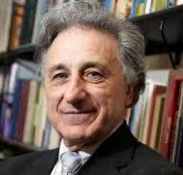 Professor James Piscatori is currently Deputy Director and Professor at the ANU Centre for Arab and Islamic Studies. Prior to holding this position, he was Chair of the School of Government and International Affairs at Durham University, a Fellow of the Oxford Centre for Islamic Studies and Fellow of Wadham College, Oxford; and Professor of International Politics in the University of Aberystwyth. He has held professorial appointments in the Department of International Politics, the University of Wales, and the School of Advanced International Studies of the Johns Hopkins University. In addition, he has been a Research Fellow at the Royal Institute of International Affairs, London, and Senior Fellow at the Council on Foreign Relations, New York. He has also been Senior Fellow at two research institutions -- the Royal Institute of International Affairs in London and the Council on Foreign Relations in New York. He has served on several international collaborative committees such as the Committee for the Comparative Study of Muslim Societies of the Social Science Research Council, and was co-editor of a series on Muslim Politics for Princeton University Press. Prof. Piscatori is the author of Islam in a World of Nation-States and co-author (with Dale F. Eickelman) of Muslim Politics. He is the editor of Islam in the Political Process and co-editor of Muslim Travellers: Pilgrimage, Migration, and the Religious Imagination. Islam, Islamists, and The Electoral Principle appeared in a series of papers for the International Institute for the Study of the Modern Muslim World in Leiden. He has also co-edited Monarchies and Nations: Globalization and Identity in the Arab States of the Gulf.
Professor James Piscatori is currently Deputy Director and Professor at the ANU Centre for Arab and Islamic Studies. Prior to holding this position, he was Chair of the School of Government and International Affairs at Durham University, a Fellow of the Oxford Centre for Islamic Studies and Fellow of Wadham College, Oxford; and Professor of International Politics in the University of Aberystwyth. He has held professorial appointments in the Department of International Politics, the University of Wales, and the School of Advanced International Studies of the Johns Hopkins University. In addition, he has been a Research Fellow at the Royal Institute of International Affairs, London, and Senior Fellow at the Council on Foreign Relations, New York. He has also been Senior Fellow at two research institutions -- the Royal Institute of International Affairs in London and the Council on Foreign Relations in New York. He has served on several international collaborative committees such as the Committee for the Comparative Study of Muslim Societies of the Social Science Research Council, and was co-editor of a series on Muslim Politics for Princeton University Press. Prof. Piscatori is the author of Islam in a World of Nation-States and co-author (with Dale F. Eickelman) of Muslim Politics. He is the editor of Islam in the Political Process and co-editor of Muslim Travellers: Pilgrimage, Migration, and the Religious Imagination. Islam, Islamists, and The Electoral Principle appeared in a series of papers for the International Institute for the Study of the Modern Muslim World in Leiden. He has also co-edited Monarchies and Nations: Globalization and Identity in the Arab States of the Gulf.
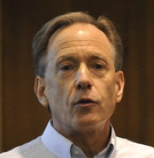 Professor Jeffrey Kenney is a professor of religious studies at DePauw University. He has a PhD in religious studies from the University of California, Santa Barbara. His research and publications have focused on modern Islam in Egypt, with special attention to Islamist politics and religious discourse in public life. His book Muslim Rebels: Kharijites and the Politics of Extremism in Egypt analyzed the way modern anti-extremist discourse draws on sectarian history and plays into debates about religion-state relations. He co-edited and contributed to an advanced introduction entitled Islam in the Modern World. His recent publications include an article on the religious-spiritual content of self-help books in Egypt and a chapter on Salafism. He expanded his interest in Islam to Southeast Asia, starting with a Fulbright Scholar Grant to Malaysia, 2012-2013. He was hosted at the International Islamic University Malaysia, in Kuala Lumpur, where he studied the way non-Muslim religions were taught in the Department of Usul al-Din and Comparative Religion. His 2019-2020 Fulbright Scholar grant is part of his ongoing interest in the way the teaching of religion (religious studies, comparative religion, Islamic studies) interconnects with modernization and the pluralistic social landscape in Southeast Asia. He is currently conducting an ethnographic research project entitled “Comparative Religion and Cultural Politics in Indonesia” at the Indonesian Consortium for Religious Studies (ICRS), Gadjah Mada University under the 2019 Fulbright US Scholar Program.
Professor Jeffrey Kenney is a professor of religious studies at DePauw University. He has a PhD in religious studies from the University of California, Santa Barbara. His research and publications have focused on modern Islam in Egypt, with special attention to Islamist politics and religious discourse in public life. His book Muslim Rebels: Kharijites and the Politics of Extremism in Egypt analyzed the way modern anti-extremist discourse draws on sectarian history and plays into debates about religion-state relations. He co-edited and contributed to an advanced introduction entitled Islam in the Modern World. His recent publications include an article on the religious-spiritual content of self-help books in Egypt and a chapter on Salafism. He expanded his interest in Islam to Southeast Asia, starting with a Fulbright Scholar Grant to Malaysia, 2012-2013. He was hosted at the International Islamic University Malaysia, in Kuala Lumpur, where he studied the way non-Muslim religions were taught in the Department of Usul al-Din and Comparative Religion. His 2019-2020 Fulbright Scholar grant is part of his ongoing interest in the way the teaching of religion (religious studies, comparative religion, Islamic studies) interconnects with modernization and the pluralistic social landscape in Southeast Asia. He is currently conducting an ethnographic research project entitled “Comparative Religion and Cultural Politics in Indonesia” at the Indonesian Consortium for Religious Studies (ICRS), Gadjah Mada University under the 2019 Fulbright US Scholar Program.
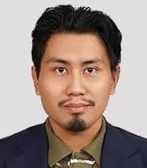 Dr. Mohd Faizal Musa (Faisal Tehrani) is Research Fellow at Institute of the Malay World and Civilization (ATMA), National University of Malaysia (UKM). His current research areas are in adopting a human rights approach concerning religious minorities with specific reference to Shia and Ahmadiyya adherents, and Human Rights in Malay Literature. He also maintains his weekly column at malaysiakini.com/bm. Dr. Mohd Faizal Musa is also a well-known novelist in Malaysia with two, among his celebrated works of twenty-three novels are, Sebongkah Batu di Kuala Berang (2011) and Perempuan Nan Bercinta (2012). His key publications are The Malaysian Shi‘a: A Preliminary Study of Their History, Oppression, and Denied Rights (2013, Journal of Shi‘a Islamic Studies), and The Axiology of Pilgrimage: The Malaysian Shi’ites Ziyarat to Iran and Iraq (2013, International Journal of Philosophy of Culture and Axiology ). His recently published book is Wacana Sastera Islam di Malaysia dan Indonesia (2012, Penerbit UPM). He graduated in 1998 with a Bachelor of Sharia (Islamic Studies), University of Malaya; received his MA in Comparative Literature from University Science of Malaysia, in 2000 and a PhD. in Comparative Literature from Institute of the Malay World and Civilization (ATMA), National University of Malaysia (UKM) in 2010.
Dr. Mohd Faizal Musa (Faisal Tehrani) is Research Fellow at Institute of the Malay World and Civilization (ATMA), National University of Malaysia (UKM). His current research areas are in adopting a human rights approach concerning religious minorities with specific reference to Shia and Ahmadiyya adherents, and Human Rights in Malay Literature. He also maintains his weekly column at malaysiakini.com/bm. Dr. Mohd Faizal Musa is also a well-known novelist in Malaysia with two, among his celebrated works of twenty-three novels are, Sebongkah Batu di Kuala Berang (2011) and Perempuan Nan Bercinta (2012). His key publications are The Malaysian Shi‘a: A Preliminary Study of Their History, Oppression, and Denied Rights (2013, Journal of Shi‘a Islamic Studies), and The Axiology of Pilgrimage: The Malaysian Shi’ites Ziyarat to Iran and Iraq (2013, International Journal of Philosophy of Culture and Axiology ). His recently published book is Wacana Sastera Islam di Malaysia dan Indonesia (2012, Penerbit UPM). He graduated in 1998 with a Bachelor of Sharia (Islamic Studies), University of Malaya; received his MA in Comparative Literature from University Science of Malaysia, in 2000 and a PhD. in Comparative Literature from Institute of the Malay World and Civilization (ATMA), National University of Malaysia (UKM) in 2010.
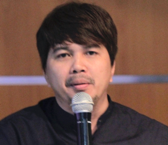 Dr Azhar Ibrahim, is the Deputy Head of Department at the Department of Malay Studies, National University of Singapore (NUS). He graduated with a Doctor of Philosophy and Masters degree from the same university specializing in Malay Studies, especially in the field of classical and modern Malay literature. His focus is on sociology of literature, social theology, cultural discourse, civilization and Islamic thought, as well as interest in critical literary discourse and Malay-Indonesian intellectual development. He has also published 'Syair Kesaksian' entitled the theme of social criticism. Among his published books are: Historical Imagination and Cultural Responses to Colonialism and Nationalism: A Critical Malay(sian) Perspective (2017), Menyanggah Belenggu Kerancuan Fikiran Masakini (2016), Utopia Masyarakat Lambak (2015), Cendekiawan Melayu Penyuluh Emansipasi (2014), Bahasa dan Tantangan Intelektualisme (2014), Contemporary Islamic Discourse in the Malay-Indonesia World ( 2014) dan Narrating Presence: Awakening from Cultural Amnesia (2014).
Dr Azhar Ibrahim, is the Deputy Head of Department at the Department of Malay Studies, National University of Singapore (NUS). He graduated with a Doctor of Philosophy and Masters degree from the same university specializing in Malay Studies, especially in the field of classical and modern Malay literature. His focus is on sociology of literature, social theology, cultural discourse, civilization and Islamic thought, as well as interest in critical literary discourse and Malay-Indonesian intellectual development. He has also published 'Syair Kesaksian' entitled the theme of social criticism. Among his published books are: Historical Imagination and Cultural Responses to Colonialism and Nationalism: A Critical Malay(sian) Perspective (2017), Menyanggah Belenggu Kerancuan Fikiran Masakini (2016), Utopia Masyarakat Lambak (2015), Cendekiawan Melayu Penyuluh Emansipasi (2014), Bahasa dan Tantangan Intelektualisme (2014), Contemporary Islamic Discourse in the Malay-Indonesia World ( 2014) dan Narrating Presence: Awakening from Cultural Amnesia (2014).
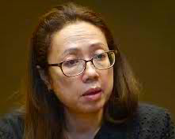 Dina Zaman is a Founding Member of IMAN Research, a think tank focusing on research and community engagement. Sha has a Master degree in Creative Writing from the University of Lancaster, UK and Honours degree in Communications from Western Michigan University, US and works in the media. She has written a book on Muslim Malaysians titled I Am Muslim and covered Muslim life in her columns for Malaysiakini.com, The Malaysian Insider and The Malay Mail Online. She was a recipient of the Nippon Foundation’s Asian Public Intellectual Fellowship in 2012, and her research was a comparative study on saints in Indonesia and Malaysia. Her latest book, Holy Men, Holy Women, was recently published by SIRD Malaysia. She has been in the media for over 20 years, serving as editor at Malaysiakini.com and The Malaysian Insider. She also has a background in corporate communications, and believes that research, advocacy and journalism can be utilised in a multimedia platform that will serve policy makers, governments and media owners.
Dina Zaman is a Founding Member of IMAN Research, a think tank focusing on research and community engagement. Sha has a Master degree in Creative Writing from the University of Lancaster, UK and Honours degree in Communications from Western Michigan University, US and works in the media. She has written a book on Muslim Malaysians titled I Am Muslim and covered Muslim life in her columns for Malaysiakini.com, The Malaysian Insider and The Malay Mail Online. She was a recipient of the Nippon Foundation’s Asian Public Intellectual Fellowship in 2012, and her research was a comparative study on saints in Indonesia and Malaysia. Her latest book, Holy Men, Holy Women, was recently published by SIRD Malaysia. She has been in the media for over 20 years, serving as editor at Malaysiakini.com and The Malaysian Insider. She also has a background in corporate communications, and believes that research, advocacy and journalism can be utilised in a multimedia platform that will serve policy makers, governments and media owners.
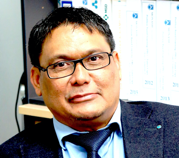 Dato’ Dr Ahmad Farouk Musa is a Founder and Director of the Islamic Renaissance Front, an intellectual movement and think-tank promoting reform and renewal in Islam, democracy, good governance and human rights. He is actively involved in civil society and the emerging discourse on post-Islamism. He is also involved in interfaith dialogues especially with regard to Christian-Muslim relations and intra-faith dialogues especially the Shi’i-Sunni discourse. He has presented papers at numerous international meetings including at the Symposium on Islam and Contemporary Issues in Tehran, Iran, in March 2017 and ISEAS Yusuf-Ishak Institute, Singapore, in August 2019. Professionally, he is an academic researcher at the School of Medicine, Monash University Malaysia. He is currently a Commissioner at the Commonwealth Initiative for the Freedom of Religion or Belief (CIFoRB) based in Westminster, London and a Research Fellow at Sekolah Tinggi Filsafat Islam (STFI) Sadra, Jakarta. He was a Director at the Centre for Combating Corruption and Cronyism (C4) and a former Deputy-Chairperson of BERSIH 2.0, a strong civil movement working for a free and fair election.
Dato’ Dr Ahmad Farouk Musa is a Founder and Director of the Islamic Renaissance Front, an intellectual movement and think-tank promoting reform and renewal in Islam, democracy, good governance and human rights. He is actively involved in civil society and the emerging discourse on post-Islamism. He is also involved in interfaith dialogues especially with regard to Christian-Muslim relations and intra-faith dialogues especially the Shi’i-Sunni discourse. He has presented papers at numerous international meetings including at the Symposium on Islam and Contemporary Issues in Tehran, Iran, in March 2017 and ISEAS Yusuf-Ishak Institute, Singapore, in August 2019. Professionally, he is an academic researcher at the School of Medicine, Monash University Malaysia. He is currently a Commissioner at the Commonwealth Initiative for the Freedom of Religion or Belief (CIFoRB) based in Westminster, London and a Research Fellow at Sekolah Tinggi Filsafat Islam (STFI) Sadra, Jakarta. He was a Director at the Centre for Combating Corruption and Cronyism (C4) and a former Deputy-Chairperson of BERSIH 2.0, a strong civil movement working for a free and fair election.